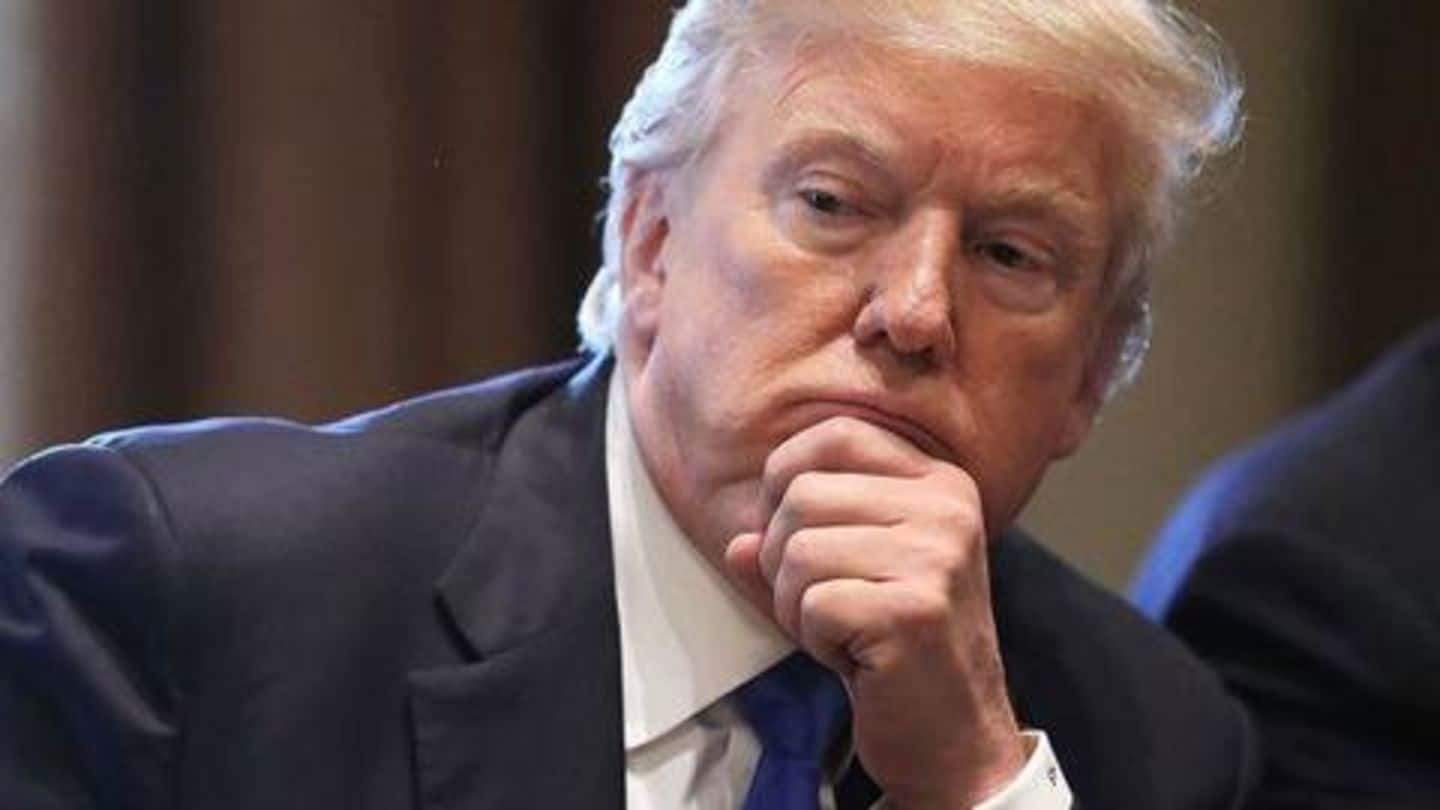
US mid-term elections explained: Could Trump get impeached?
What's the story
In less than 24 hours, American voters will take to the polls to vote in the crucial US mid-term elections that could make or break Donald Trump's presidency. The mid-term elections, to be held on November 6 (US time), are being seen by many as a referendum on Trump who, so far, has been a controversial figure. Here, we explain what they're all about.
Introduction
What the US mid-term elections are all about
The US mid-term elections happen every four years in November, two years either side of the US Presidential Elections, and weigh heavily on the US President's ability to govern the country for his/her remaining term. During the mid-term elections, the control of the US Congress - comprising the House of Representatives and the Senate - goes up for grabs.
Seats
Which seats are up for grabs
In every mid-term election, all 435 seats of the US House of Representatives go up for grabs, while roughly one-third of the 100 seats in the Senate go up for election. This year, 35 Senate seats and 435 House of Representatives seats will be up for election. For control of the House of Representatives, a majority of 218 is needed. For controlling the Senate, a majority of 51 is needed.
Power
So far, it has been smooth sailing for the Republicans
Since the US general elections of 2016, the Republicans have held a majority in both the Senate and the House of Representatives. Additionally, with Republican candidate Donald Trump in control of the White House, it has been smooth sailing for the Republicans so far. Yet, all that could change if the Democrats gain control of either house of the Congress.
House
As it stands, Democrats just might win the House
As it stands, Democrats could well go on to win a majority in the House of Representatives - they need to win 23 seats in addition to the seats that they hold. According to reports, among the 435 seats up for grabs, the Democrats are sure to win 182 seats, while Republicans are sure to win 140 seats. The rest, which could go either way, hold the key to the control of the House.
Senate
Republicans could lose control of the Senate too
The battle for the Senate is more interesting. As it stands, the Republicans hold a majority with 51 seats, while the Democrats hold 47. Two seats are held by independent candidates who caucus with the Democrats. Among the 35 seats going up for election, the Democrats have a better hold with 14 sure victories. The Republicans have 4 seats secured. The rest could swing either way.
Do you know?
History is not on Trump's side
Since the American Civil War which ended in 1865, all US mid-term elections have seen the party with a president in the White House lose an average of 32 seats in the House of Representatives and two seats in the Senate.
Scenarios
Possible outcomes of the elections
If the Democrats win control of both houses of the Congress, life would become really hard for President Trump - an impeachment motion could also be on the cards. If the Republicans continue to control both houses, nothing changes. If the Democrats win either of the two houses, rivalry and disagreement between the two houses could lead to a government shutdown, unless, of course, one side is willing concede.
Impeachment?
If the Democrats win, could Trump be impeached?
If the Democrats gain control of the House of Representatives, they could move an impeachment motion against President Trump, subject to the motion being approved by a majority of the House. If the motion gets approved, it has to be passed in the Senate by a two-thirds majority. If the motion passes the Senate, then Trump would get impeached and Vice-President Mike Pence would take his place.
To conclude
Frustration, not impeachment, might be on the cards for Trump
Trump critics should note here that no US President in history has ever been impeached, and realistically speaking, it's unlikely that Trump will be impeached. What is more likely, however, is a gridlock - the Democrats could well gain control of one of the houses of the Congress, and could frustrate Trump by repeatedly blocking his plans and policies. Now, all that's left to do is wait and see.